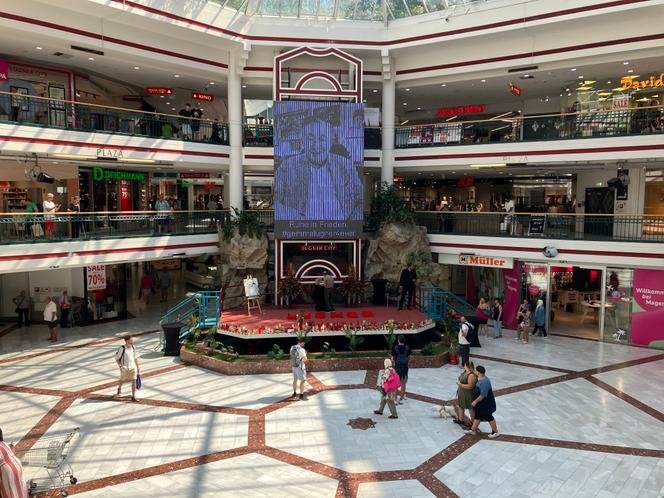
LETTER FROM VIENNA
In the middle of the shopping center, the large stage was transformed into an altar. Instead of the usual pole-dancing, dog-training or beauty pageant performances that make Vienna’s “Lugner City” so popular, customers were greeted by a large black-and-white portrait of the owner. Under Richard Lugner’s shuffling gaze and benevolent smile, dozens of candles formed the family name of the iconic Austrian builder, whose death in mid-August at the age of 91 triggered an astonishing wave of emotion in the Alpine country.
“He influenced my whole childhood. This was like my home, it’s a very colorful place where everyone mingles and we used to see him often,” said Celina Fedanci, 21, a teaching student who spontaneously went to leave condolonces in a book made available to dozens of moved customers on Wednesday, August 14, before bursting into tears. Like many Viennese, they were delighted to see the owner’s stooped silhouette continue to walk the mall until almost his last day. Very approachable, he was always available for a selfie.
Unknown outside the borders of his country of 9 million residents, Lugner was a true national star in Austria. Hailing him as a “colorful personality,” (conservative) Chancellor Karl Nehammer spoke of a true “Austrian originality,” in unison with the entire political establishment, which paid him a unanimous tribute. The Lugner family even called on “all Viennese, all Austrians and beyond” to come and “bid farewell together” at Vienna’s emblematic Saint-Stephen’s Cathedral on Saturday, August 31, then to accompany his coffin in a procession to his shopping mall.
Reality TV and the presidential election
Dead at 91, the man nicknamed “Mortier” [“Mörtel” in German] perfectly embodied that Austrian old-fashioned spirit, sometimes saucy conservatism, combined with no-nonsense camaraderie. The son of a lawyer with Nazi convictions who died on the Russian front during the Second World War, he founded a construction company in the 1960s. But his first big coup came in the 1970s when he built Vienna’s first mosque, financed at the time by Saudi Arabia – especially ironic for a man who later often professed his hostility to immigration.
Nonetheless, it was above all the tabloid press that made him a star, reveling in his antics and his numerous marriages to women who were often much younger and had animal nicknames, such as “Mausi” (mousetrap) and “Bambi.” As a reality TV show contestant, “Mörtel” was a showman who knew how to use his popularity and cheesy image to promote his business. For example, he made a habit of paying American stars such as Pamela Anderson and Kim Kardashian tens of thousands of euros to accompany him to the Opera Ball, the most glamorous event of the Austrian elite.
You have 36.38% of this article left to read. The rest is for subscribers only.